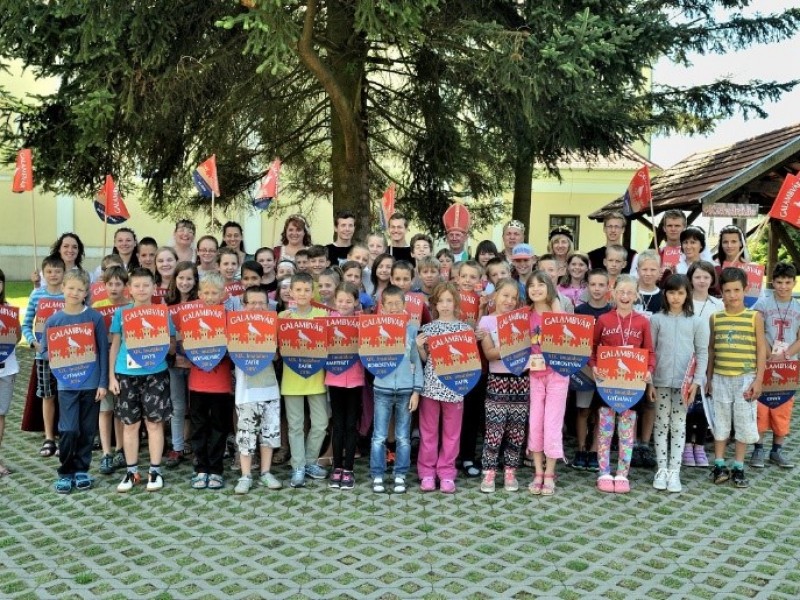Improving COmpetences and skills through Food sector InNovations
COMMON CHALLENGE: Main problem is related to innovation capacity in remote areas. In SI, HU, PL & SK those areas are facing declining employment opportunities in traditional industries as a result of structural change. This emphasizes the need to take steps to stimulate economic activity with employment generating potential for regions are facing difficulties in maintaining a critical mass of facilities to support economic development. Analysis show that food sector together with other value chain related sectors represent one of the most important, potential field to leverage improvement of socio-economic situation in remote areas. Main objective: Improving entrepreneurial competences and skills in remote areas through food innovation potentials. Outputs:1) Joint transnational food mentor scheme;2) Food crowd design platform usability. Approach: Project consists of 10 carefully selected competent partners who are according to the role in the project divided into 3 groups. Knowledge partners covering areas of mechatronics, food safety and packing design; regional partners whose role is implementation of actions on a regional level and lead partner whose role is related to be engaged in all main areas of intervention together with WP coordinators. Innovative character: (1) mentor scheme: integrated cross-sectoral experts approach (mechatronics, biotech & design), mobility of transnational pool of experts coming from different EU regions, focus oriented program to food related SMEs, sustainable business model; no similar scheme existing. (2) Crowd design platform usability: unlocking food legislation restrictions, focus on food design packing and branding, open creativity, cheaper results, worldwide involvement & risk free. Transnational added value: international pool of mobile experts, transnational partner network helping local SMEs to enter bigger market – better conditions for business expand-positive impacts on employment-braindrain stopped-tendencies to immigration.
The main objective is improving entrepreneurial competences and skills in remote areas through food innovation potentials. Food sector together with other value chain related cross-sectors represent the most potential field to leverage improvement of socio - economic situation in remote regions having deficiencies in their innovation system as result of structural change.
While SMEs are facing shortage of skilled labour force in relation to requirements posed by technological progress and economic innovation, project is oriented on results to improve technological competences and management skills within food related SMEs. The I-CON partners want to tackle these challenges by following an interdisciplinary approach with engagement of “knowledge partners” representing sectors of mechatronics (novel technologies), biotech (food safety & quality), design (packaging) and “regional partners” responsible to facilitate improvement of technological competences on a regional level. With implementation-oriented approach we want to boost impacts of the project by addressing the challenge of multi-sectoral and transnational involvement of competent partners. In particular, project will play an active part in achievement of the following objectives: increasing skills of food related SMEs regarding novel technologies, methods and services and contributing to regional smart specialisation strategies; developing and implementing system and tools to improve SMEs competences and creativity.
Main result: Improved competences and skills of SMEs, entrepreneurs and employees driving food sector innovations in Central European regions. Within the project the following result indicators will be achieved: Tools: 8 tools elaborated 1 ATLAS mapping tool (a map of food technology, food design, food safety providers), 1 Handbook tool (good practice case studies presented), 3 SME assessment tools (fields: novel technologies, food safety & quality, packaging design optimization process), 3 transferability guidelines (managing innovation – technology, safety, design). Trainings: 2 types of trainings 1 exchange of knowledge training between the partners in order to improve partner’s capacity to be involved in the region as facilitators; 5 regional exchange workshops where regional SMEs will be involved into the training program. Action plans: 2 common action plans. 1 Common transnational food mentor scheme, 1 Common food packaging design crowdsourcing platform. Pilot actions: 2 common testing pilots 1 testing scheme: in 5 pilot regions, 50 SMEs assessed, 15 pilot actions, 3 topics (novel technologies, safety, design); 1 testing platform: min 200 users involved (designers and food SMEs), min 20 product result solutions provided. Within the project new employments and investments will be demonstrated as indirect results of the project. In addition the project will trigger activities outside the project partner regions by various dissemination activities.
 English
English Magyar
Magyar


















